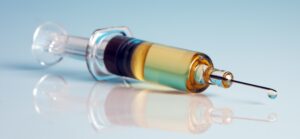The Race for Safe Vaccines

By Lea Wolfinger, VP Ashton Tweed
Research and development for safe, reliable vaccines is typically a lengthy process – as in many years.
Enter COVID-19 and, according to the World Health Organization (WHO), the urgent need for a vaccine has resulted in “unprecedented financial investments and scientific collaborations, changing how vaccines are developed.” It means that some steps, which previously happened consecutively, must occur in parallel, while preserving strict clinical and safety standards.
The first breakthrough came when Pfizer/BioNTech, published its first results from clinical trials of their RNA type vaccine. Two doses, given three weeks apart, to approximately 43,000 people indicate an average efficacy of 96%. Moderna, who developed another RNA type vaccine, also reported an average efficacy of 95% in clinical trials. Both vaccines, however, require freezing storage. Moderna’s vaccine requires temps of -20C and can be stored for six months. Pfizer/BioNTech’s vaccine requires -70C for up to six months.
And now, a third COVID-19 vaccine candidate, by AstraZeneca in partnership with the University of Oxford, has presented convincing evidence that it works. Although its average efficacy comes in at 62-90%, (vs. 95%), this viral vector type vaccine only requires normal fridge temperature, making it easier to distribute. It also promises to be less expensive than Pfizer/BioNTech and Moderna ($3-4/dose vs. $25+/dose).
In an article for Science, Jon Cohen, and John Travis report that Peter Piot, head of the London School of Hygiene & Tropical Medicine, was “very pleased” to see these results, especially given the “encouraging news” that the half-dose scheme worked best. The initial half dose allows more people to receive the vaccine even though it remains in short supply for the next several months.
The article notes that AstraZeneca claims that no safety issues have emerged in the efficacy trials. They will file for emergency use of the vaccine with the UK and other countries. Additional efficacy trials (involving 60,000 participants) are progressing in Kenya, Japan, India, and the US. AstraZeneca says about 3 billion doses of the vaccine could be ready in 2021.
Additional vaccines are also being developed:
- The next few weeks should bring trial results on the Russian Sputnik Vaccine, which works like the Oxford one. Current data suggests it is 92% efficient.
- Janssen’strial is recruiting 6,000 people across the UK, in a total of 30,000 volunteers worldwide, to see if two jabs give stronger and longer-lasting immunity than one.
- Wuhan Institute of Biological Products and Sinopharm in China, and Russia’s Gamaleya Research Institute are all in final testing.
So with all the hope these vaccines bring, what still needs to be accomplished, and who will get them first?
As we pointed out earlier, vaccine research and development is a lengthy process.
- Trials must show the vaccine is safe.
- Huge-scale development must happen for the billions of potential doses.
- Regulators must approve the vaccine before it can be given.
- Researchers still need to find out how long any protection may last.
As to who will be at the front of the line, when vaccines become available, it depends on where the virus is spreading, and in which groups the vaccine has proven to be the most effective. Some countries suggest that nursing home residents and staff, healthcare workers, and all persons over 80, will get first offerings.
While every ‘race’ has a bit of competition, the real race is for global health and safety. As Rachel Arthur shares in The Future of Vaccine Development: 5 Legacies from COVID-19, the silver lining in this race is the legacy we have gained globally. The five “legacies” include:
- Working Together
- New Technologies
- Personalized Vaccines
- More Knowledge
- Collecting and Analyzing Vaccine Data
In the end, the race for vaccines is getting closer to the finish line every day, and many would put that at the top of their wish list for the holidays.
In all drug research and development, as well as vaccines, pharma, and biotech companies need top-level, highly skilled, and credentialed professionals. Ashton Tweed provides premium retained search services. We find you the talent your company needs for success.






